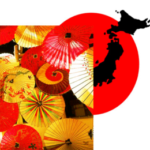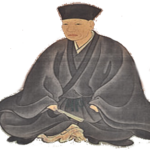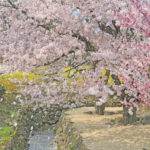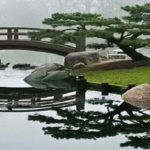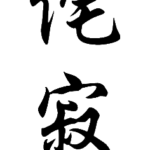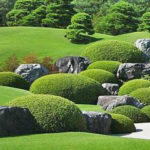Wabi-sabi is an ancient Japanese philosophy influenced by Zen Buddhism (a bit of history here). It is one of the basic concepts of Japanese culture. Still, if you asked the Japanese public for an explanation of wabi-sabi, if you were even able to get an answer, every person would answer differently. Wabi-sabi really has no clear definition. That actually broadens the possibilities for different perceptions for each individual.
 In a simplified way, wabi-sabi can be described as thinking of celebrating the natural imperfection of the world and seeing a certain beauty in that imperfection. It is finding some evaluation and grace that brings the influence of time, for the things around us as well as for ourselves. It also perceives eventual defects as a certain uniqueness, awareness of the impermanence time.
In a simplified way, wabi-sabi can be described as thinking of celebrating the natural imperfection of the world and seeing a certain beauty in that imperfection. It is finding some evaluation and grace that brings the influence of time, for the things around us as well as for ourselves. It also perceives eventual defects as a certain uniqueness, awareness of the impermanence time.
Wabi-sabi was originally used to create the ideal environment for meditation in tea ceremonies.
These were guided by tea masters, all of which had to manage a huge range of knowledge, among others in architecture, interior design, garden design, flower arranging, painting, food preparation and acting. But they were also often philosophers and they used to express their thoughts with the writing and citation of very short poems (unlike the very large books of Western philosophers).
with the writing and citation of very short poems (unlike the very large books of Western philosophers).
This is probably why short poetic expressions are the best for your own understanding of this way of looking at the world. And it’s up to us how we want to perceive them.
So, what is wabi-sabi?

It is the art of finding beauty in imperfection and profundity in nature, of the acceptance of the natural cycle of growth, death and decay.
It is a celebration of the beauty of normality and the natural evolution of life on earth.
It is the wisdom of a natural simplicity, honouring authenticity above all, as well as liberation from any biases or prejudices.
It is the beauty of modest and simple things, as well as the beauty of the unusual.

It is a celebration of cracks and crevices, and any other marks that time, weather, and even loving use leave behind.
It reminds us that we are all but transient beings on this planet.
The ideas of wabi-sabi can be described only as follows:

Simplicity
Nature
Acceptance of imperfection
Transient beauty
Intuition
Asymmetry
Incompleteness
Peace of mind
Life in the moment
Valuation
Humility, modesty, moderation and austerity
Emptiness (consciousness of openness)
Everything is constantly changing





